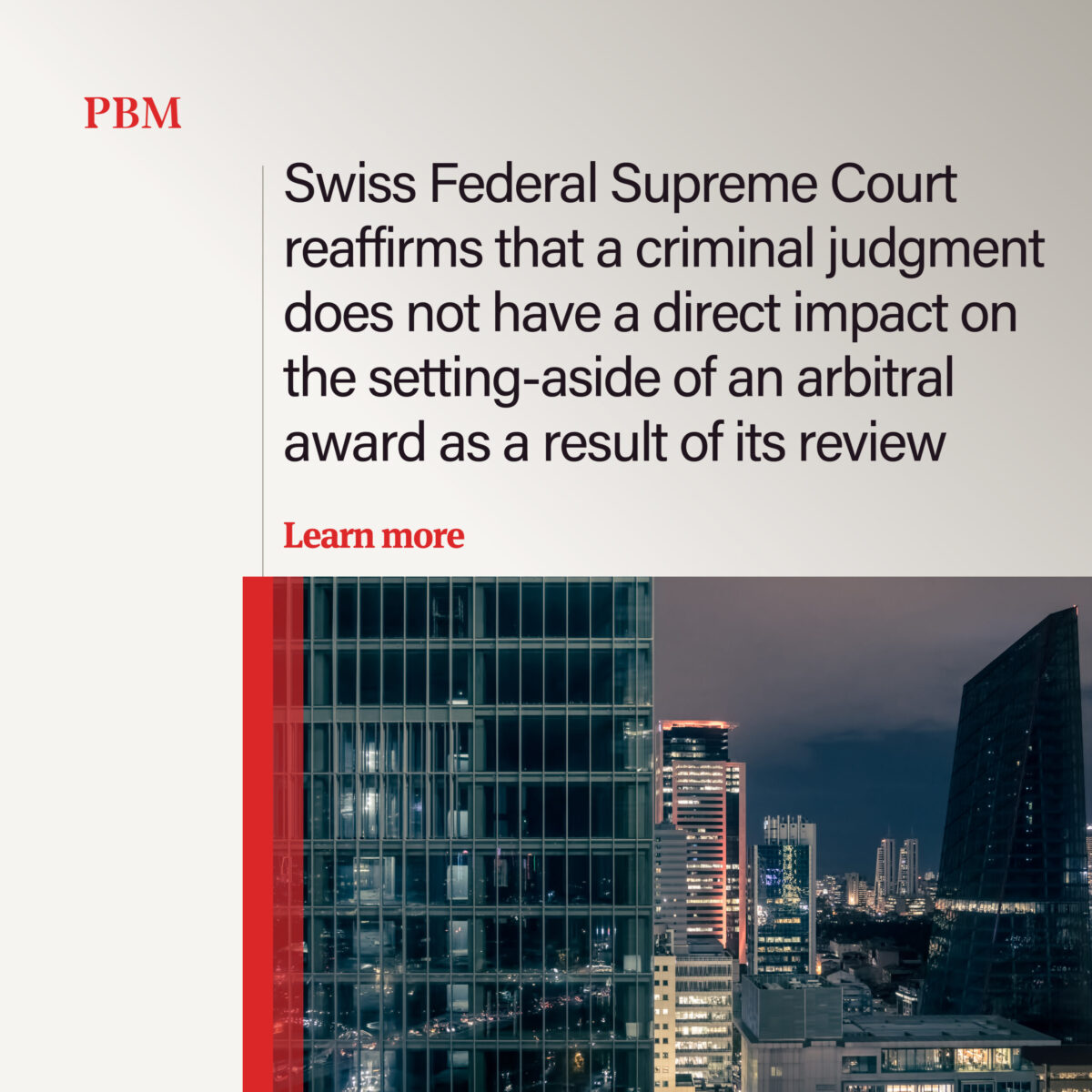Accessibility Requirement Introduced for Websites and Mobile Applications
June 25, 2025İsviçre Federal Mahkemesi, ceza mahkemesi kararlarının, hakem kararlarının yeniden incelenmesi sonucu iptal edilmesi açısından doğrudan bağlayıcı etkisi olmadığını vurguladı
June 26, 2025
Swiss Federal Supreme Court reaffirms that a criminal judgment does not have a direct impact on the setting-aside of an arbitral award as a result of its review.
The Swiss Federal Supreme Court has held that a criminal conviction arising from the same factual circumstances as those underlying an arbitral proceeding does not, in and of itself, justify the setting aside an arbitral award as a result of its review.
(Swiss Supreme Court, Decision 4A_69/2022 – 23)
I.Background of the Decision
The matter stemmed from allegations of corruption concerning the privatization of a Croatian state-owned energy company. The Republic of Croatia initiated arbitration proceedings, asserting that certain contracts had been procured through the bribery of public officials. On this basis, Croatia sought a declaration from the arbitral tribunal that the contracts were null and void.
The tribunal, however, dismissed the claims due to insufficient evidence, expressly finding that the claimant’s principal witness was “wholly unreliable” and accordingly disregarded their testimony.
Subsequently, domestic criminal proceedings in Croatia resulted in the conviction of former public officials and company representatives on charges of corruption. In the wake of these developments, the Republic of Croatia submitted an application to the Swiss Federal Supreme Court, seeking a revision of the arbitral award. The application was made under Article 190a(1)(b) of the Swiss Private International Law Act (“PILA”), which provides for the revision of an arbitral award where the award has been influenced by a felony or misdemeanor.
In evaluating the application, the Swiss Federal Supreme Court was called upon to address a critical issue: whether criminal convictions are binding on arbitral tribunals adjudicating the same or related factual circumstances.
II.Key Findings of the Swiss Federal Supreme Court
The Swiss Federal Supreme Court rejected the application and reiterated the autonomy of arbitration from parallel criminal adjudications. The Court emphasized the following principles:
- A criminal conviction, standing alone, does not suffice to establish that the arbitral award was improperly influenced by criminal conduct.
- Revision application requires the applicant to demonstrate a clear, direct, and specific causal nexus between the criminal offense and the content or outcome of the arbitral award.
- Arbitral tribunals are not legally bound by the determinations of criminal courts and are entitled to independently evaluate the facts and evidence before them.
III.Conclusion
he decision rendered by the Swiss Federal Supreme Court establishes a significant threshold concerning the influence of criminal convictions on arbitral proceedings. It expressly reaffirms the autonomy of arbitral tribunals and their unfettered discretion in the evaluation of evidence.
Furthermore, the judgment highlights the imperative for parties to formulate their evidentiary strategies independently of the trajectory and outcome of any parallel criminal proceedings, particularly in arbitrations involving grave allegations such as corruption or comparable forms of misconduct.


